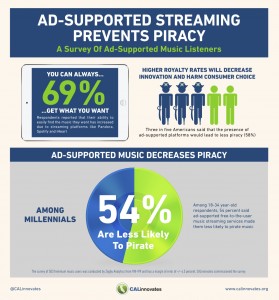By: Mike Montgomery
2016 has started out on a sour note for Live365. The online radio service, which specializes in user-curated music, announced that it has had to lay off a significant portion of its staff and will likely shut down later this year.
The reason: A decision by the Copyright Royalty Board to raise the rates non-interactive Internet streaming services like Pandora have to pay for the right to spin music. In December, the board raised the rate from 14 cents per 100 plays to 17 cents.
Three cents is trivial, right? Not exactly. It might not sound like a lot of money, but for small Internet streamers like Live365, it’s the difference between survival and ruin. It’s hard enough to run a business when 50% or more of a non-interactive streaming company’s revenues go toward royalty payments. It’s even more challenging when what’s left over can’t be reinvested into innovation or marketing in order to enhance the customer experience or grow the listener base through marketing and promotions.
Live365 isn’t the only victim of the CRB’s decision. SmoothJazzChicago, a site run by radio vet Rick O’Dell, is also shutting down. O’Dell cited the new royalty rates as one of the main reason he’s turning off the lights.
While the rate hike certainly harms the bigger players, it’s devastating to a whole tier of streaming companies that either serve niche audiences or were just getting off of the ground. There’s no doubt it’s also affecting the army of entrepreneurs in Silicon Valley and elsewhere who are currently hard at work on the next big thing for Internet music, not to mention the venture capital that will instead go toward startups that don’t have to give away the lion’s share of their revenue in order to avoid collapse.






